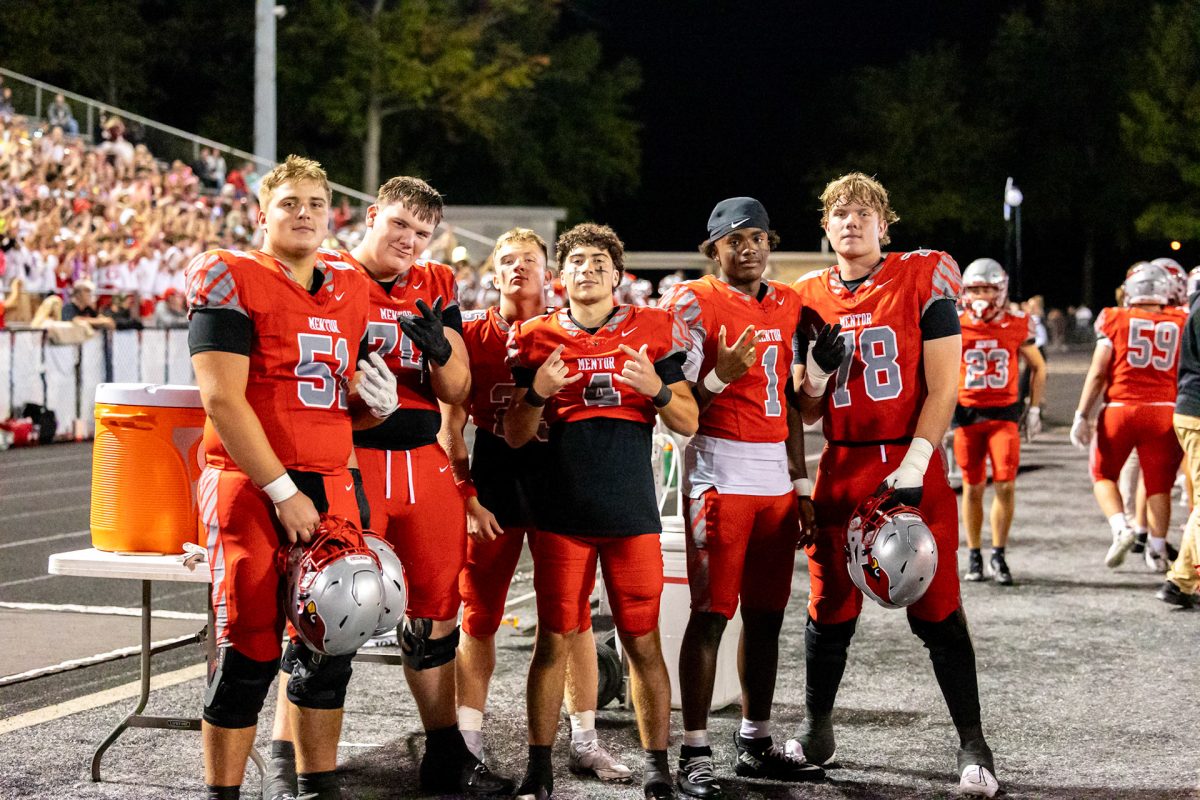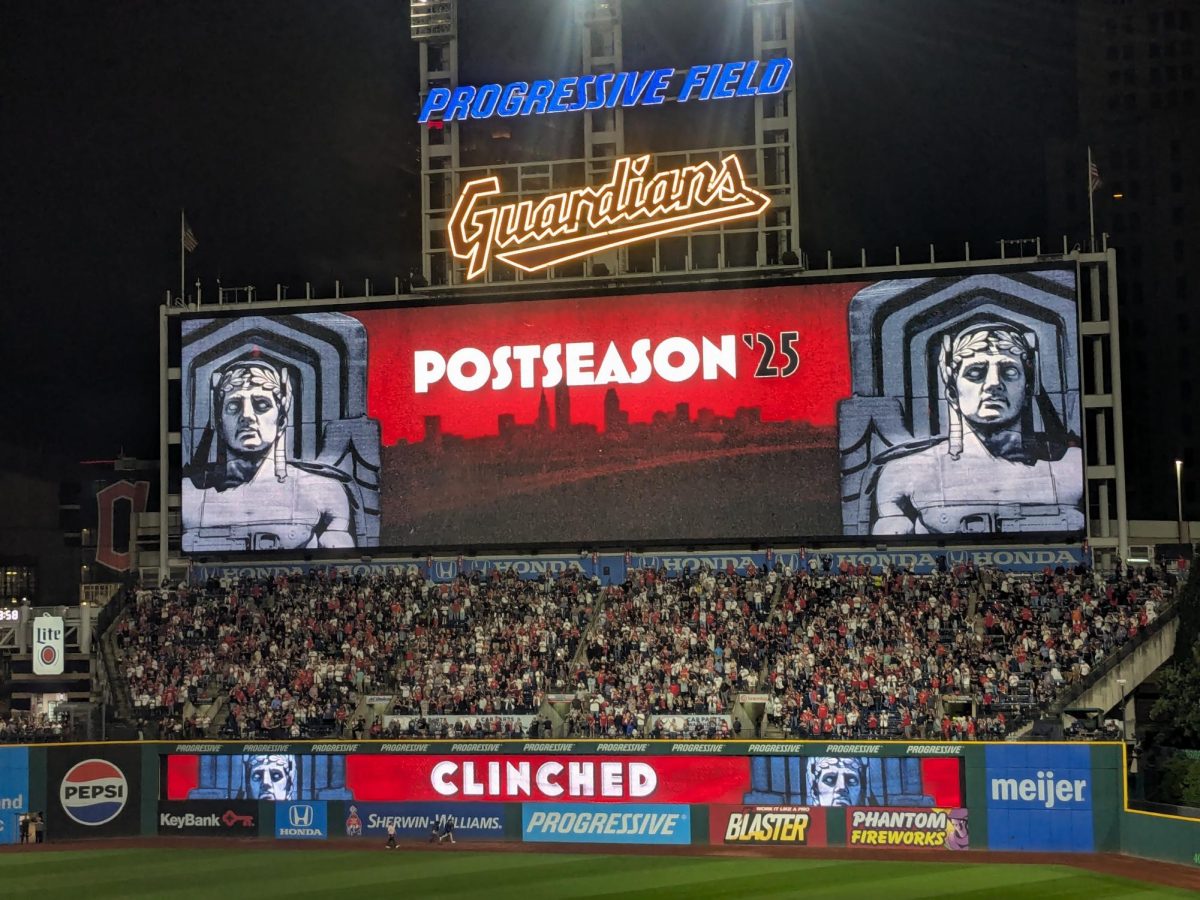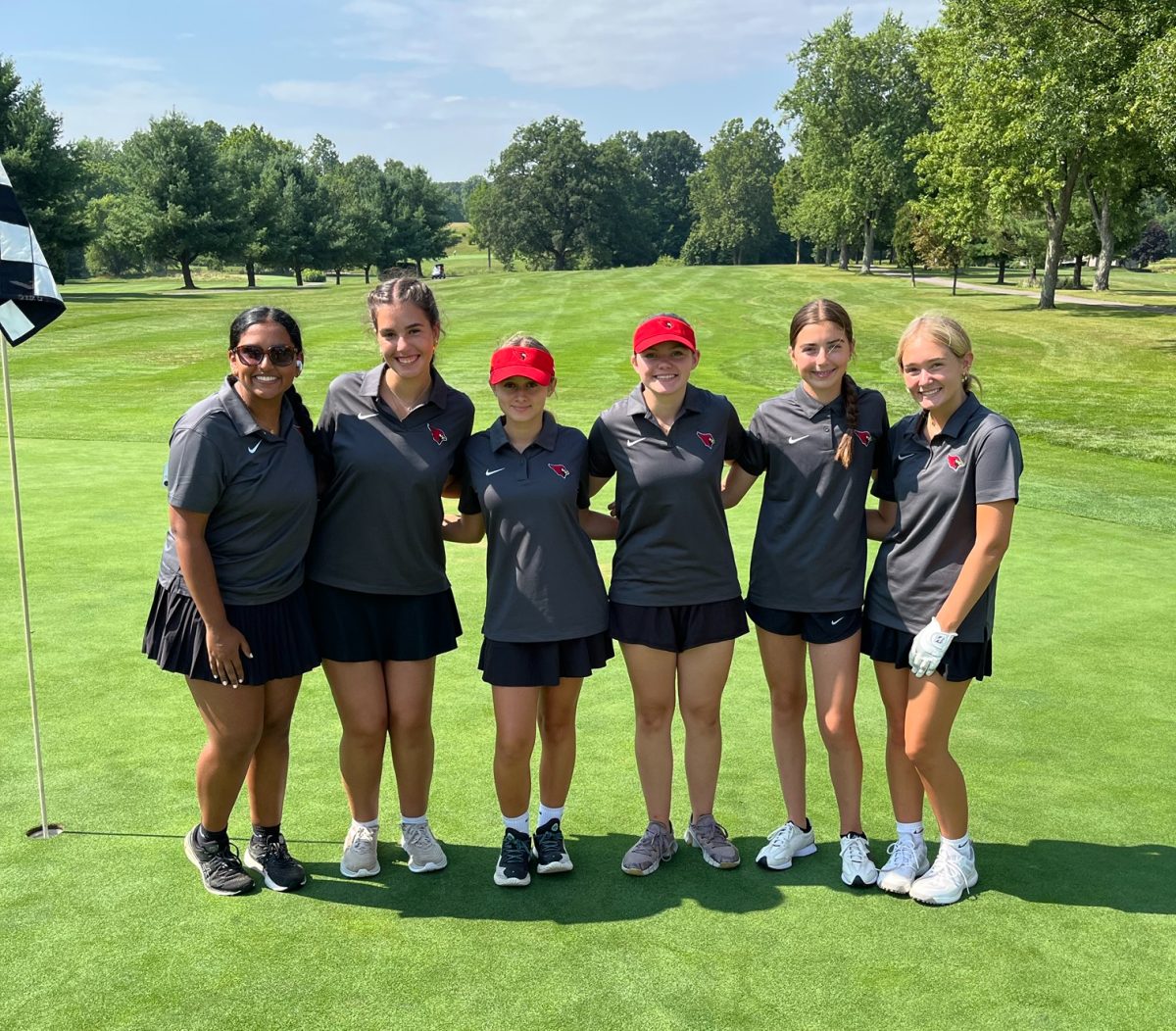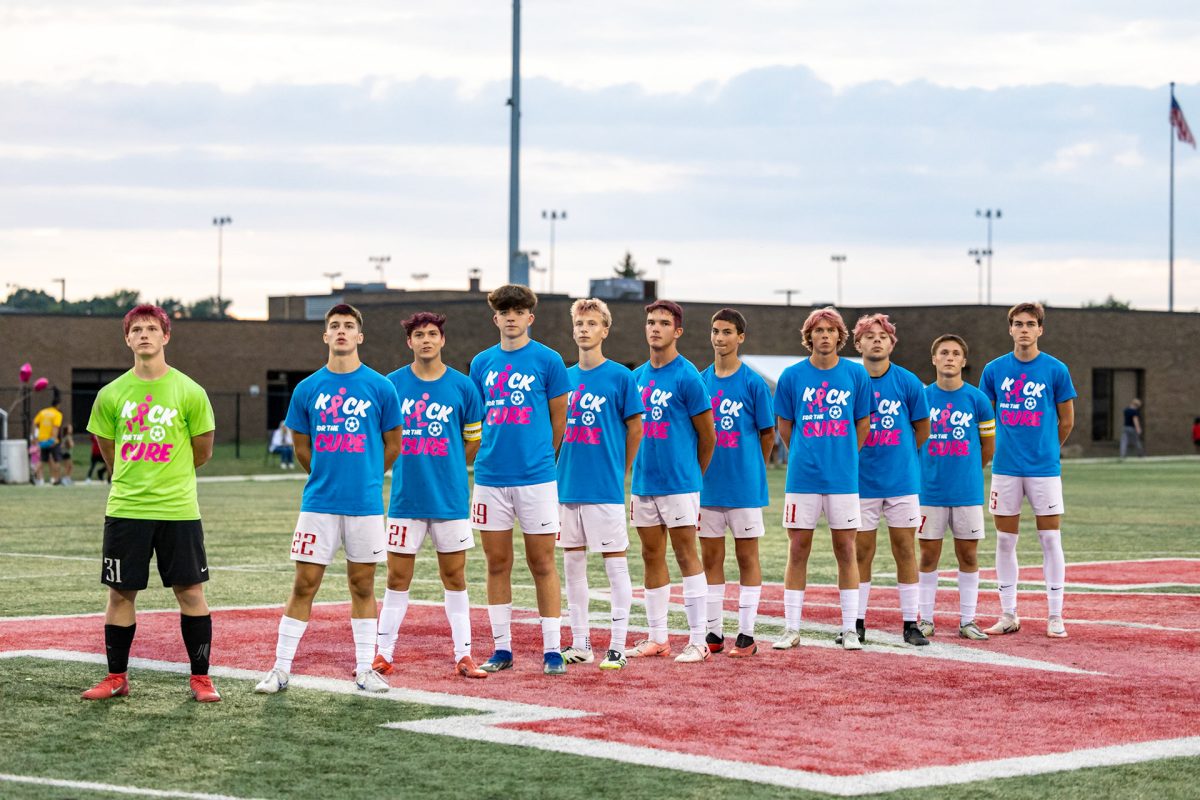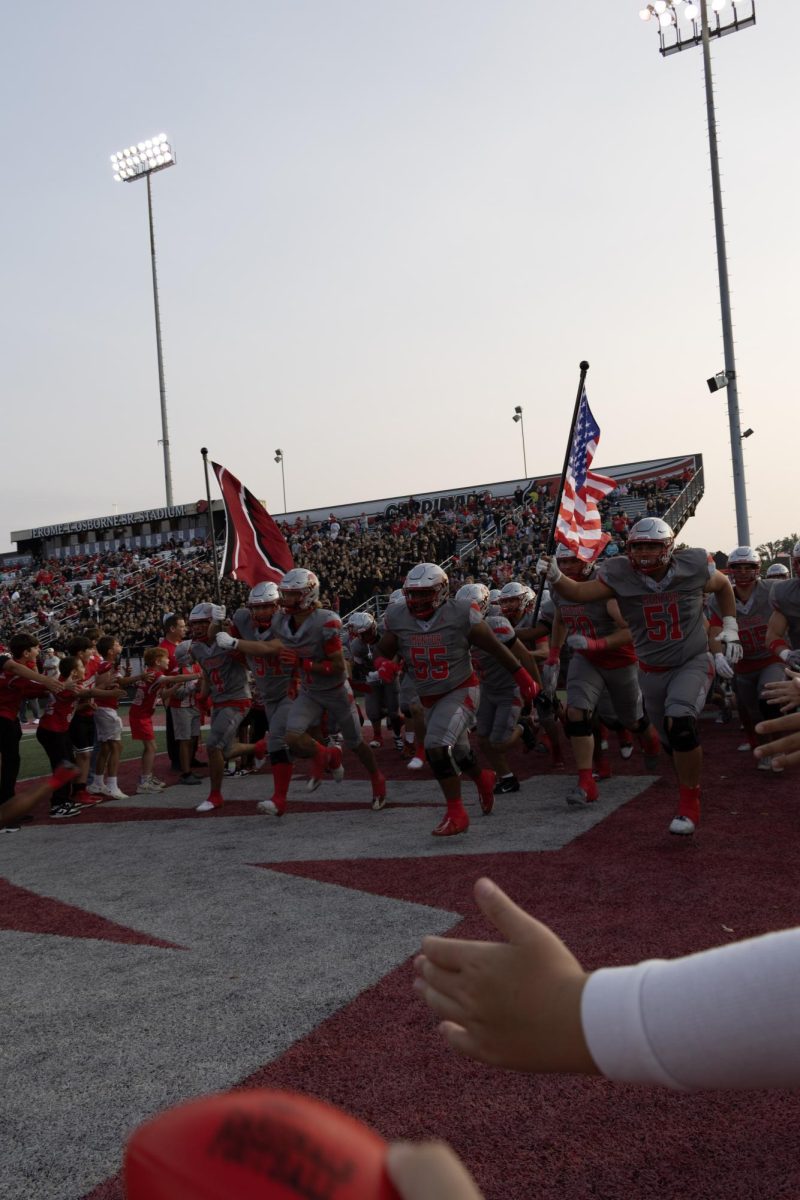From the Archives – Mentor Log (October 2, 1975)
Read this interview with an MHS Social Studies teacher reporting on his visit to the Soviet Union!
The Flag of the Soviet Union, a nation now broken into many nations including Russia
March 30, 2023
Please enjoy this archived article from the old Mentor High School Log, one of the earlier incarnations of the Mentor High School student newspaper. Special thanks to Mr. Sanelli for finding these in an old bureau taken from the old Mentor High School Library during its renovation into the Hub. Also thanks to Mrs. Ford and the GenYes team for scanning and sharing the original article.
This article reports on life in the Soviet Union in 1975 after MHS Social Studies teacher Ward Barnes paid a visit. At that time, the Cold War still raged. It is interesting to reflect on this part of the world at a time when the Soviet Union is gone but Russia under Vladimir Putin presents different challenges, namely in Ukraine. His observations also reflect the 1970s a bit, I might add!
On a personal note, thirty years ago in 1993 I did a long-term substitute assignment for Mr. Barnes when he took a medical leave. I taught his World History and American Government with Reading classes in upper B-wing. It was my first professional assignment, fresh out of college and four years before coming to MHS full-time in his old department!
Update (4/25/23): Mr. Barnes retired from MHS in 1996 and went on to serve as a part-time supervisor at Villanova University’s Falvey Memorial Library from 1998 to 2018. He enjoyed travel, as this article indicates, and visited all 50 states and traveled to more than 60 countries. Mr. Barnes passed away of pancreatic cancer on April 19, 2023 after a diagnosis of pancreatic cancer that was made around the time of this “From the Archives” publishing. He asked that expressions of sympathy be made in donations to one of his favorite charities, the Nature Conservancy. – Mr. Couch, Cardinal Nation Advisor
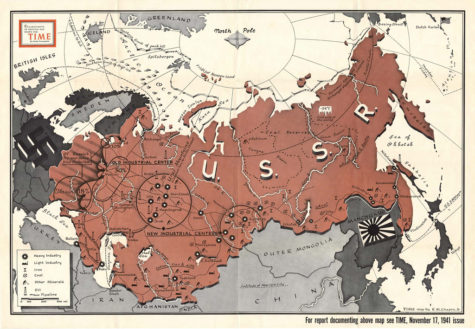
Barnes Recounts Views on Russia
By Al Rudnickas
October 2, 1975
Most Americans view the Soviet Union as a closed, obsolete country, but Ward Barnes, social studies teacher at MHS, learned that this isn’t necessarily true.
In late July, Mr. Barnes received his visa, a document granting permission to enter the USSR, and left for a two-week tour of the Soviet Union.
Aboard the Soviet state owned Aeroflot Airlines, “The Soviet stewardesses are not as pretty as the American stewardesses; in fact, some are quite homely,” remarked Mr. Barnes.
Mr. Barnes visited the Russian cities of Kiev, Leningrad, Moscow and Odessa.
“From the air, all you see are hundreds of apartment houses,” commented Mr. Barnes on the aerial view of a typical Russian city.
One of the most interesting details Mr. Barnes noticed was the significant absence of cars. “In the cities, all you see are buses, street cars, and taxi cabs,” said Mr. Barnes.
This is because of the shortage of consumer goods. Mr. Barnes commented that a car the size of a Fiat costs seven thousand rubles, equivalent to $11,000. This is extremely expensive for a Russian citizen because the average earnings of a Soviet person total about $3,000 a year.
There appears to be no gas shortage in the USSR because Siberia holds much of the country’s oil. The Soviet Union also has good relations with the Arab nations of the Middle East. Mass transit also helps save gas in the USSR.
For a crosstown journey in the average Soviet city, it would cost seven cents to travel by subway, six cents by bus, five cents by streetcar.
The only restriction imposed upon tourists traveling in the USSR is the photographing of military bases, airports, aerial pictures, bridges, soldiers on active duty, or other pictures that would prove important in military strategy.
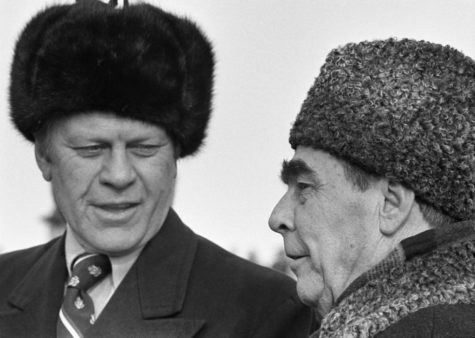
“There is very little pollution, in fact, the Russians have gone all out to end pollution in the cities,” remarked Mr. Barnes. He also said that there are trees and parks all over the cities and jets are not permitted to fly in certain areas. In some places, it is against the law to honk your horn. Even the police cars have no sirens.
Apparently Mr. Barnes enjoyed the food. Especially world famous Russian food such as caviar and vodka.
As for the people of Russia, Mr. Barnes said that they dress shabbily and that clothing is not of good quality. He was told by his guide that the people seem proud and are satisfied with Communism’s achievements. “But I didn’t see many smiles,” laughed Mr. Barnes.
He said it appears that there are a few problems in the system and that the people seem to be under a great deal of anxiety.
The only drawbacks of the trip Mr. Barnes encountered were the language barrier and his inability to know a Russian citizen.
Mr. Barnes said that he might have been able to understand some of the Russian language if it weren’t for the differences between alphabets.
Mr. Barnes said he truly enjoyed his trip, and now he has an inside view of the real Russia.




